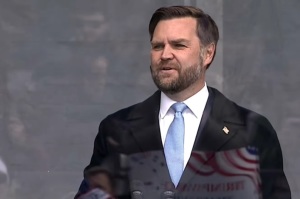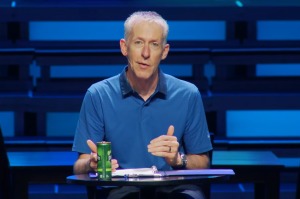Book Takes New Look at CS Lewis' Views on Science, Evolution
Famed Christian author C.S. Lewis is widely believed to have been either indifferent to or supportive of modern evolutionary theory, but a new book released Tuesday challenges that notion using evidence from little-known personal notes written by Lewis.
The Magician's Twin: C.S. Lewis on Science, Scientism and Society is a compilation of writings from a variety of scholars who examined scientific books and pamphlets found in the author's personal library.
According to John West, the book's editor and a senior fellow at the Discovery Institute in Seattle, Wash., these documents contain underlined passages and annotations composed by Lewis that have never been written about before. There are over three dozen science-related books in Lewis' collection, and most of them are on the topic of evolution.
Lewis once wrote a letter to his father saying the ideas of Charles Darwin and Herbert Spencer were built "on a foundation of sand." A 400-page book found in Lewis' collection, which he read as a 19-year-old soldier in World War I, is heavily marked and helped convince Lewis that natural selection lacked the creative power needed to construct the world as we know it.
There were some principles of the evolutionary theory that Lewis rejected altogether – such as the idea that evolution occurs through undirected natural selection – though others he accepted. Although Lewis believed in a literal Adam and Eve and mankind's fall from grace as told in the Old Testament book of Genesis, for example, he also believed the theory that says all living creatures have a common ancestor, though he became more skeptical of that theory later in his life, says West.
The title of the book comes from Lewis' The Abolition of Man, in which he calls modern science and magic "twins." West says Lewis was concerned that some would use modern science in the same way they tried to use magic in medieval times, to control nature.
"The downside is if you want to control the world then you may get delusions of grandeur, or you may try to play God ... The deification of science, the application of science to morality, the use of science for things like eugenics and breeding a better human race are things that really concerned him," said West.
Lewis was concerned that the power of science would be abused, so what would he think of the use of science in the world today? West says Lewis was "prophetic" when it came to his concerns about science.
"I think he would have been aghast at how correct he was ... and in some sense things are coming to the point that he predicted," said West.
To support his claim, West pointed to contemporary arguments in favor of human eugenics, or improving a population's genetic makeup through science. Some who support eugenics have gone as far as to say women should be able to abort their pregnancies if it is known that child will have genetic defects prior to his birth.
Lewis was opposed to the idea of trying to improve the human race in this way, in large part because a sort of eugenics had been practiced by the Nazis during his lifetime, though he wasn't opposed to the use of medicine or other medical treatment technologies to improve quality of life.
West also used the example of the much-disputed contraception mandate found in the United States' Affordable Care Act, which would require religious organizations to pay for contraception and abortifacients even if they don't believe in the use of them.
Previously, West says, the U.S. Department of Health and Human Services released a statement citing good science as a reason to keep the law in spite of religious convictions.
"So they're citing science as a justification for basically abrogating religious freedom. And this is precisely the sort of scientism that Lewis is talking about, the misuse of science outside its proper sphere to limit human freedom, to basically claim control over morality," said West.
Lewis was not opposed to science as a means of learning about nature, West noted, but he was opposed to using it as a method of control.
In addition to The Magician's Twin, West hopes to see three films created on the topic of Lewis' views on science. The first film, titled "The Magician's Twin: C.S. Lewis' Critique of Scientism," is 30 minutes long and will premiere online, and possibly on a national satellite television station, this November.




























